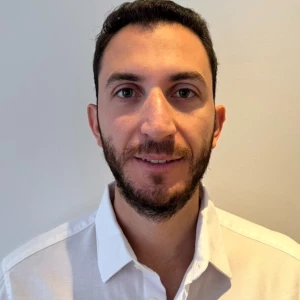So I have started casing practice and wanted to further understand what should be asked during clarifying questions or during the interview itself. An instance is regarding gaining more company information. I initially thought this should be asked during the case interview itself (using 3Cs and P framework) but according to some it should be asked during clarifying questions. E,g, someone told me that asking for revenue trends of the client is good to ask as a clarifying question but I thought that it should be asked later during the main part.
What to ask in clarifying question and what to ask during the interview?


Hi there,
I would be happy to share my thoughts on your questions:
- First of all, it's important to distinguish between the initial clarifying questions and questions during the interview. Clarifying questions are meant to ensure you understand the goal, scope, and context of the case.
- Moreover, during the main part of the interview, after establishing the initial structure, that's when you delve into detailed questions.
- Lastly, I would highly advise you not to think in rigid frameworks like 3Cs for the clarifying questions, but to genuinely consider what information you need in order to understand the goal, scope, and context of the case.
You can find more on this topic here: How to succeed in the final interview round.
If you would like a more detailed discussion on how to best prepare for your upcoming interviews, please don't hesitate to contact me directly.
Best,
Hagen

Hi there!
First of all, there is not a perfect science in terms of how much to ask and when. But there are rules of thumb you can use, while also, with experience, you can get a feel of what is “the right amount and when”.
My personal recommendation is
In the clarifying question, ask just enough to make sure you understand the basics of how the business operates / make money (e.g., what is the product, who buys it, who produces it). The exact questions will depend on what is already offered and your very early hypothesis of what matters for the case.
- Use a simple rule of thumb (caution: it might not always apply just like this, that's why it's a rule of thumb): the shorter and more vague the prompt is, the more clarifying / leading questions you can ask. If the interviewer has already spent 5 full minutes giving you the prompt, it would be a safe assumption they are expecting you to proceed with your hypothesis and structure after only a few clarifying questions.
Now, the actual answer, beyond these short tips and tricks is that you should ask & get enough information to enable you to form a hypothesis on which to base your problem structuring.
Even broader thinking, imagine being in an actual client situation, where you try to understand their situation (e.g., current business operations, their challenges), but you would not actually expect them to give you too much of the answer.
Hope this help as a starting point,
Ariadna
I think of a few things that I need answers to: R-GOT
R: Reason - why does the client want to do this?
G: Geography constraints?
O: Objective - what KPI?
T: Timeline.

Hi there,
I'd put them into two buckets:
- Operationalize the goal (What's the exact objective, target, and timeline): This helps you figure out what the client actually wants to achieve/know/solve. You should ask this as it defines the solution space and therefore impacts your analytical framework. Many case prompts include a very vague and ill-defined goal (on purpose).
- Understand the situation better (contextual questions and questions related to the business model or workings of the industry). Do not fish for information on the problem at this stage of the case. Here, it is all about understanding the situation to then define an analysis plan with your framework.
Overall, this process should not last longer than 2-3 minutes (Q&A at the beginning of the case) and the questions should come naturally to you without thinking.
Cheers,
Florian

















